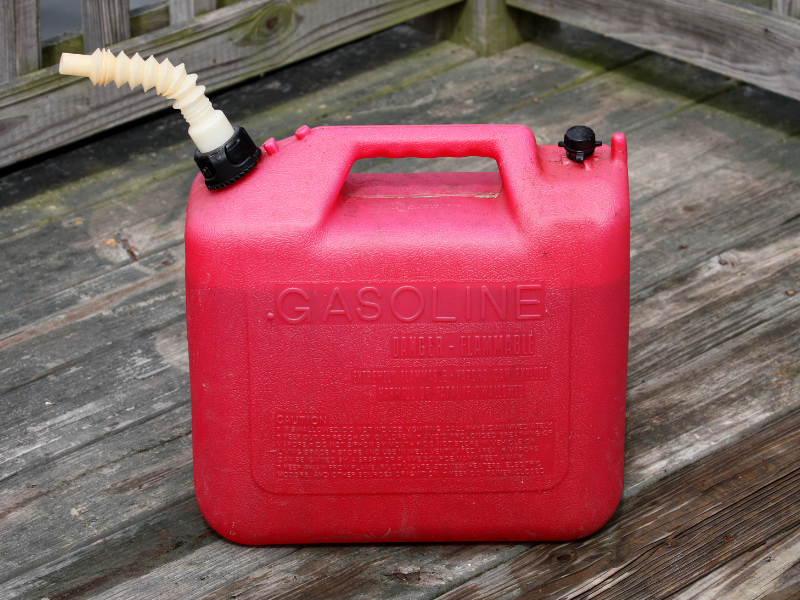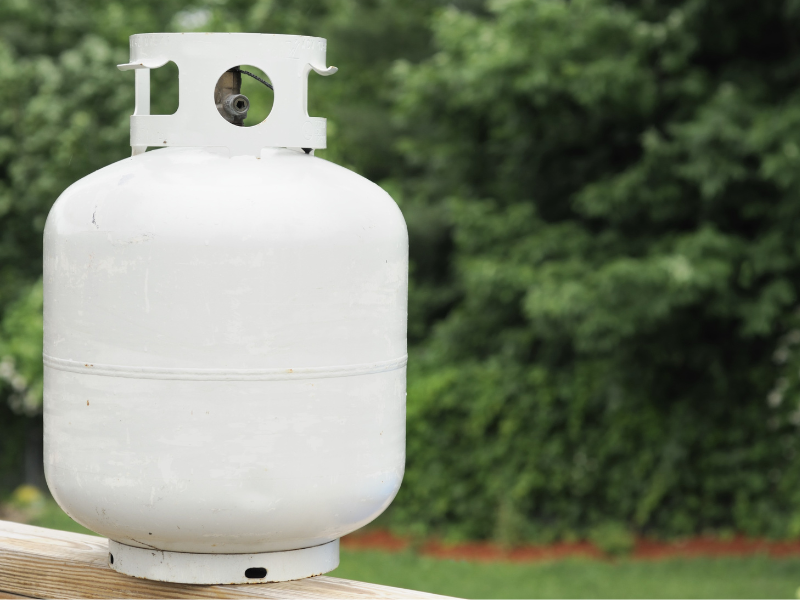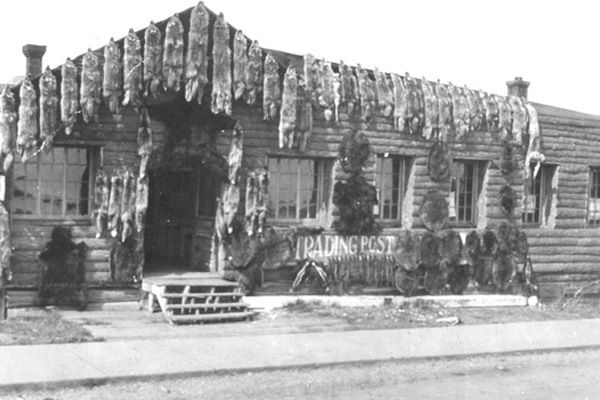Proper fuel storage is crucial for emergencies, whether you're powering a car, generator, or stove. Learn how to safely store different types of fuels and ensure they're ready when you need them most.
Containers for Liquid Fuel
When storing fuel or fire-starting materials, always use containers that are:
- Sturdy, reliable, and leak-proof
- Clearly labeled (typically red for liquid fuels)
- Opaque or non-translucent to prevent fuel degradation
Gasoline
The American Petroleum Institute recommends storing gasoline for up to two years without a stabilizer. Treated gasoline, however, can last longer with fuel stabilizers.

Using stale gasoline can damage engines. For optimal performance, rotate gasoline every 1-2 years and consider stabilizers like PRI-G Gasoline Fuel Treatment.
Diesel Fuel
Diesel fuel has a short shelf life of 6-12 months. Oxidation begins immediately after production, forming sediments that can clog engines.
Tips for storing diesel:
- Keep fuel cool and add stabilizers to slow oxidation.
- Prevent algae by controlling condensation.
Rotate your diesel supply every two months by using it in vehicles or generators. (Source: Oblio13 Blog)
Kerosene
Kerosene is versatile and stable, lasting up to three months in a plastic container. Beyond that, mold and bacteria can form.
Storage tips for kerosene:
- Store in a properly labeled, differently colored container.
- Keep outdoors, protected from direct sunlight to avoid degradation.
Butane
Butane, commonly used for lighters and camping equipment, is stored in pressurized containers. Follow manufacturer instructions for safety:
"Keep butane in a dry, cool place away from sunlight and heat sources. Ensure the container tip is undamaged or unclogged to avoid leaks." (Source: eBay)
Propane

Propane should be stored outdoors in a well-ventilated area. Storage tips include:
- Keep tanks upright on a stable surface like concrete.
- Avoid proximity to flammable items and direct water exposure (e.g., gutters).
- Never store propane indoors or in garages.
For more safety details, visit Propane 101.
Charcoal
Charcoal is ideal for emergency cooking and can be safely stored indoors. Tips for storing charcoal:
- Keep charcoal in a dry container, such as a metal bin or bucket with a gamma lid.
- Never cook with charcoal indoors due to carbon monoxide risks.
Coal
Coal can withstand damp conditions without degrading. For ease of use:
- Store bagged coal until needed.
- Keep loose coal in wooden bins or under a tarp for protection.
For more details, refer to this eHow article.
Firewood
Store firewood outdoors, at least 30 feet from your home. Follow these tips:
- Stack wood on a raised holder (e.g., a DIY firewood caddy).
- Cover with a tarp or log rack cover to protect from rain.
- Avoid spraying wood with insecticide; dry wood quickly to remove bugs.
Learn how to build a firewood caddy with this step-by-step guide.
Matches
Choose high-quality, waterproof matches with long stems for safety. Storage tips:
- Place matches in a waterproof container.
- Keep away from direct sunlight and moisture.
Explore a variety of waterproof matches for your emergency kit.












